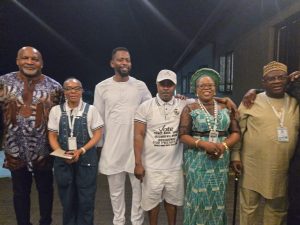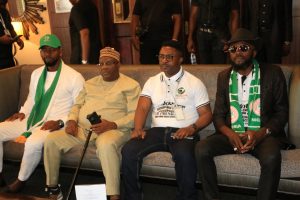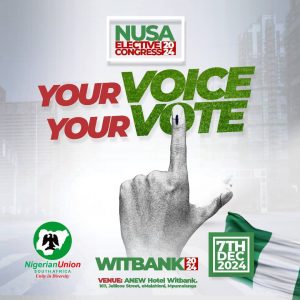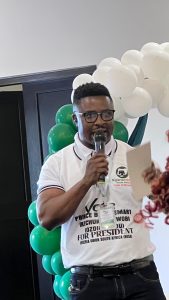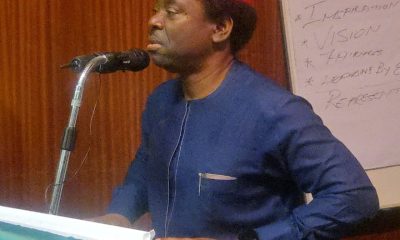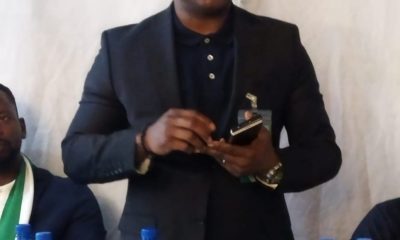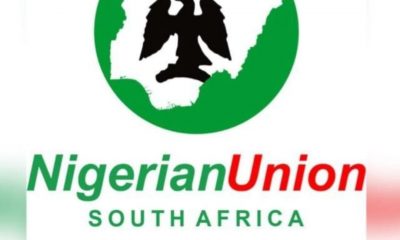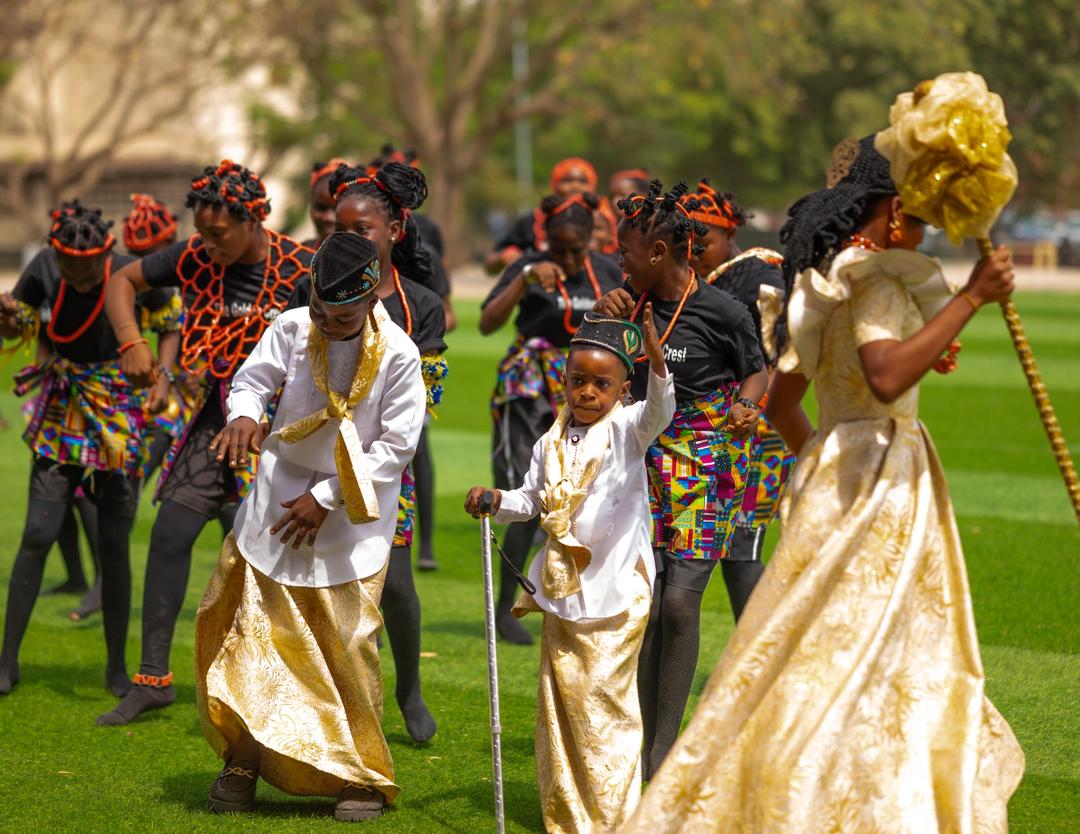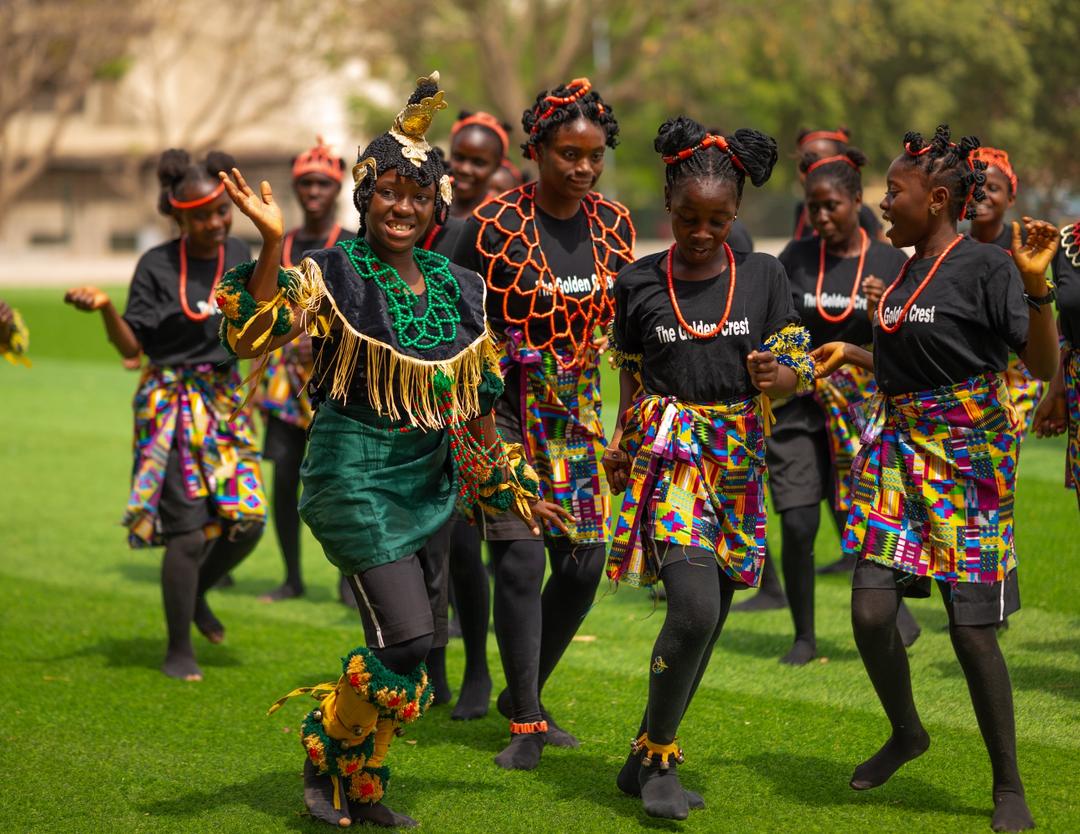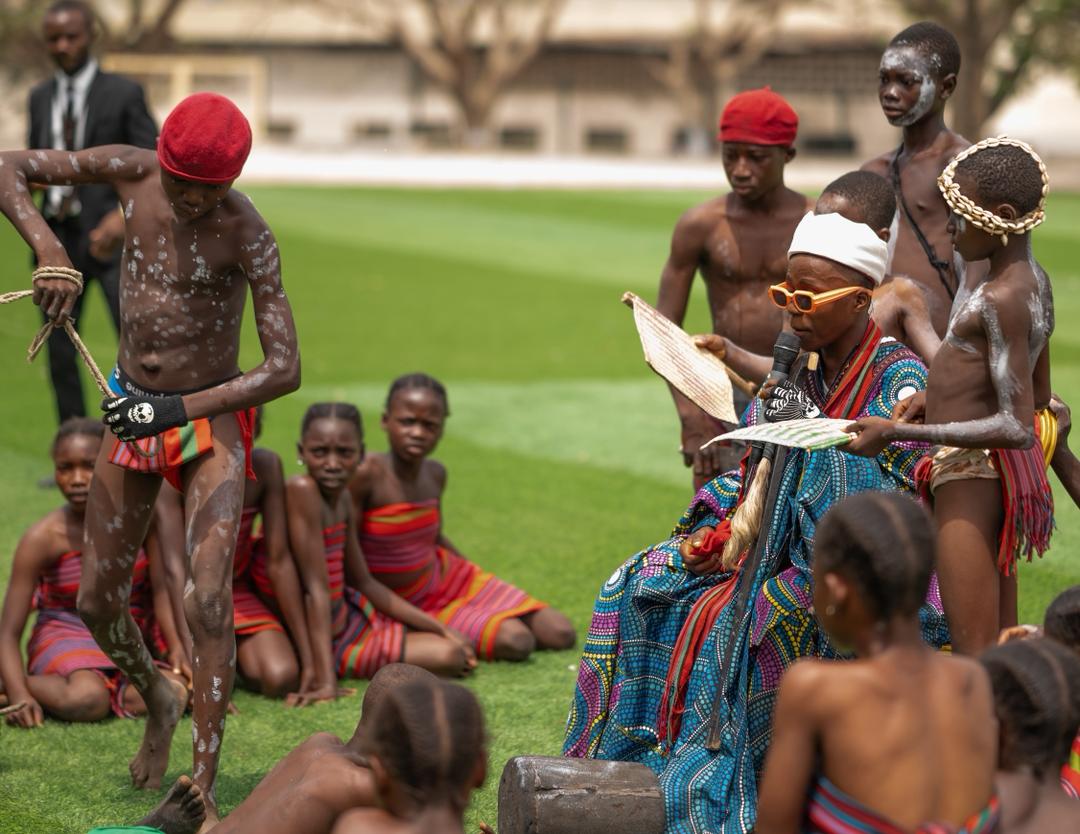society
Unity in Diversity: NUSA Inauguration and Migrant Magazine Volume 2 Launch Signal a New Era for Nigerians in South Africa
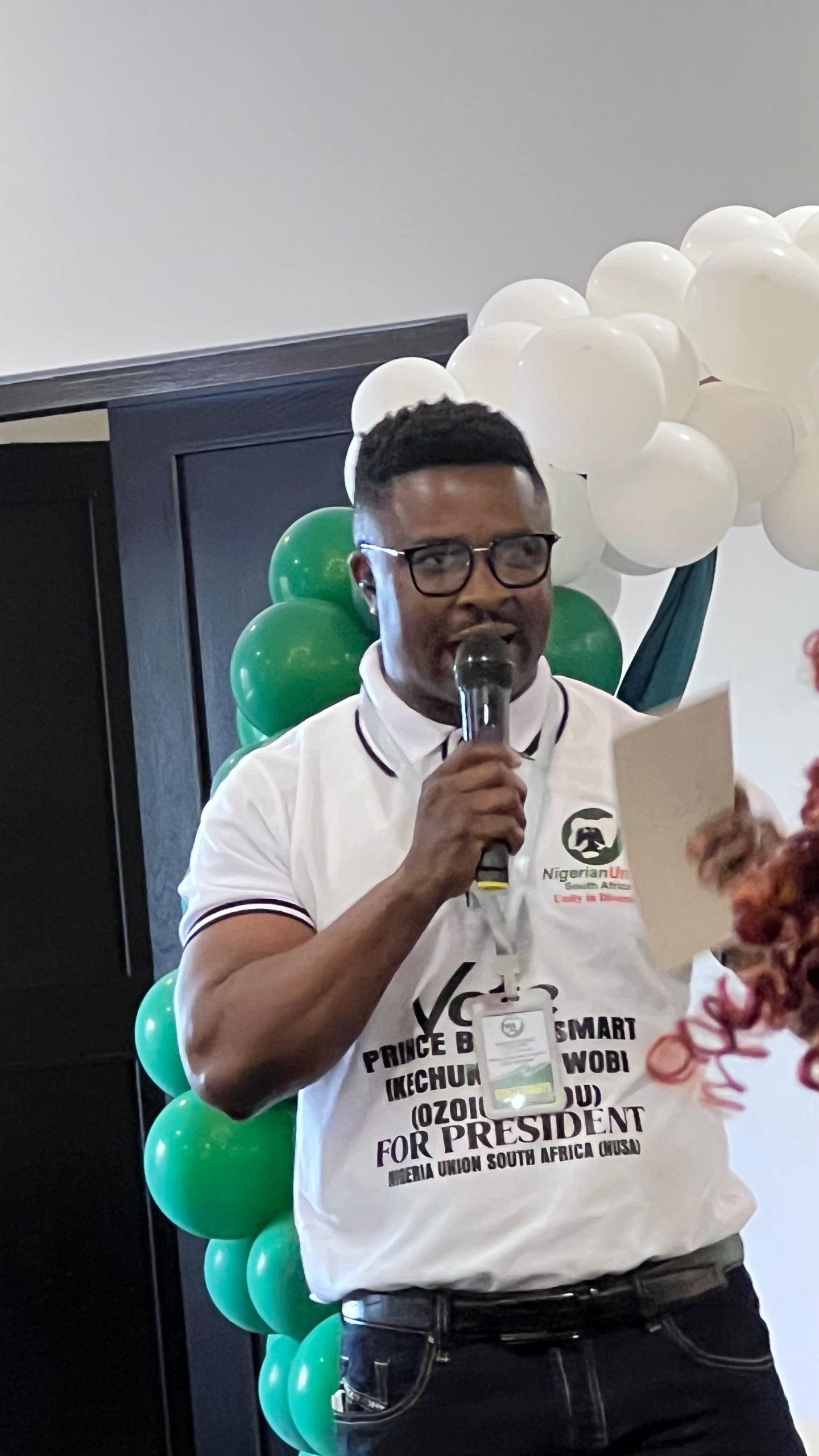
Unity in Diversity: NUSA Inauguration and Migrant Magazine Volume 2 Launch Signal a New Era for Nigerians in South Africa
By George Omagbemi Sylvester
In what promises to be one of the most significant events in the Nigerian diaspora community, the Nigerian Union South Africa (NUSA) will officially inaugurate its newly elected President General and executives, alongside the grand launch of Migrant Magazine, Volume 2, Issue 1. The occasion, themed around the union’s motto, “Unity in Diversity,” is set to attract an array of distinguished dignitaries, scholars, and community leaders from across South Africa.
From a vibrant gala dinner to high-level panel debates and cultural showcases, this event is more than ceremonial—it is a call to leadership, resilience, and redefined identity for Nigerians navigating the complex realities of life in South Africa.
A Star-Studded Line-Up of Leaders and Thinkers
The event will host an impressive list of guests, including:
Senator Anthony E. Yaro
Hon. Engr Bello Lawal
Ambassador Janet Lisa
Engr Dr. Sule Yakubu Basi
Professor Jude Sakwe
Professor Isike Christopher, a respected authority in African Politics and International Relations at the University of Pretoria.
Their attendance reflects the rising influence and importance of NUSA and the broader Nigerian community in South Africa’s socio-political landscape.
The Nigerian Migrant: Resilient in the Face of Adversity
The Nigerian migrant experience in South Africa is as complex as it is painful. From targeted xenophobic attacks and economic marginalization to discrimination in service delivery and law enforcement brutality, Nigerian migrants have faced a litany of challenges. These struggles are not just personal—they are structural, deepened by a narrative that paints Nigerians as threats rather than contributors.
And yet, despite these odds, Nigerians in South Africa have thrived. They have started businesses, excelled in academia, fostered inter-cultural relationships, and contributed to the economic dynamism of South African cities. They are entrepreneurs, professionals, artists, and change-makers who refuse to be defined by fear or failure.
A Visionary Leader at the Helm
At the forefront of this new era is the newly elected President General of NUSA(Hon. Barr Prince Smart I Nwobi), whose leadership has already ignited optimism within the community. His deep understanding of diplomacy, strategic community engagement, and grassroots mobilization places him in the right position to elevate NUSA to unprecedented heights.
His commitment to unity, transparency, and developmental progress offers a fresh perspective in a time when Nigerian migrants desperately need strong, empathetic representation. The community eagerly anticipates the practical implementation of his vision—a NUSA that is more visible, more vocal, and more victorious.
Honoring Royalty: Hon. Barr Prince Smart I Nwobi, the overall Prince of Awgu Egbeleli and the Ozoigbondu Ezesinachi 1
The event will also be graced by His Royal Highness, the Prince of Awgu Egbeleli, and the Ozoigbondu Ezesinachi 1 of Awgu Egbeleli, Enugu State (incoming NUSA PRESIDENT GENERAL) . These revered figures bring a powerful blend of tradition, moral authority, and cultural pride to the event. Their support for NUSA symbolizes the crucial link between cultural identity and political resilience. Their continued advocacy is not only appreciated—it is essential.
Meet the Incoming Executives
NUSA’s new executive team comprises individuals of high repute and proven dedication to community advancement. Together, they represent the diversity and richness of Nigerian talent abroad. Their portfolios cut across youth empowerment, security, welfare, communication, and economic initiatives—each role tailored to address pressing issues within the diaspora community.
These executives are not figureheads; they are foot soldiers of a cause larger than themselves: to protect, unite, and empower Nigerians in South Africa.
Migrant Magazine: Reclaiming the Narrative
The launch of Migrant Magazine Volume 2, Issue 1 adds significant intellectual depth to the event. The publication continues to be a voice for the voiceless—spotlighting stories, challenges, and triumphs of Nigerians living abroad.
This edition dives deep into topics such as:
The politics of migration
Socioeconomic survival strategies
Community resilience
The power of African solidarity
In a media landscape that often vilifies immigrants, Migrant Magazine reclaims the narrative. It is not merely a magazine—it is a movement. A literary resistance against erasure, and a platform for advocacy, awareness, and identity preservation.
Panel Debates: Talking Solutions, Not Just Problems
One of the most anticipated parts of the event will be the thought-provoking panel debates featuring scholars, diplomats, and community leaders. These discussions will confront the harsh realities faced by Nigerian migrants, with topics ranging from xenophobia and identity, to economic integration and diplomatic policy.
Panelists will offer actionable strategies, rooted in data and experience, to reposition Nigerians not as outsiders, but as integral players in South Africa’s multicultural society.
The Way Forward: From Protest to Power
If NUSA is to move from symbolic representation to real transformation, the road ahead must be paved with strategic action.
The new leadership must prioritize:
Legal representation for abused migrants
Public relations campaigns to counter anti-Nigerian stereotypes
Business support programs to empower Nigerian entrepreneurs
Diplomatic lobbying to pressure both Nigerian and South African governments to act in defense of migrant rights
Above all, the Union must foster a culture of unity. Tribalism, factionalism, and ego must be buried beneath a greater cause—survival, dignity, and collective progress.
A New Dawn for NUSA and the Nigerian Diaspora
This is more than an inauguration; it is the beginning of a new chapter. A chapter where Nigerian migrants will no longer be silent spectators to their own oppression, but bold architects of their destiny. A chapter where the Nigerian Union South Africa becomes a sanctuary of empowerment and a bastion of hope.
The presence of respected leaders, scholars, and royal figures at this event speaks volumes. The time for change is not tomorrow—it is now. And with strong leadership, a united community, and platforms like Migrant Magazine, Nigerians in South Africa are not just surviving—they are rising.
Let the bells ring. Let the drums sound. The sons and daughters of Nigeria are ready to claim their rightful place—together, proud, and unafraid.
Contact:
For media inquiries, interviews, or coverage, please contact NUSA Publicity secretary +27 78 077 3464 or visit [https://www.nigerianunion.org.za/].
Photo & Media Opportunities Available During the Gala Event
society
You Against Crime Founder Tayo Folorunsho Praises Winners of Abuja Schools Festival.
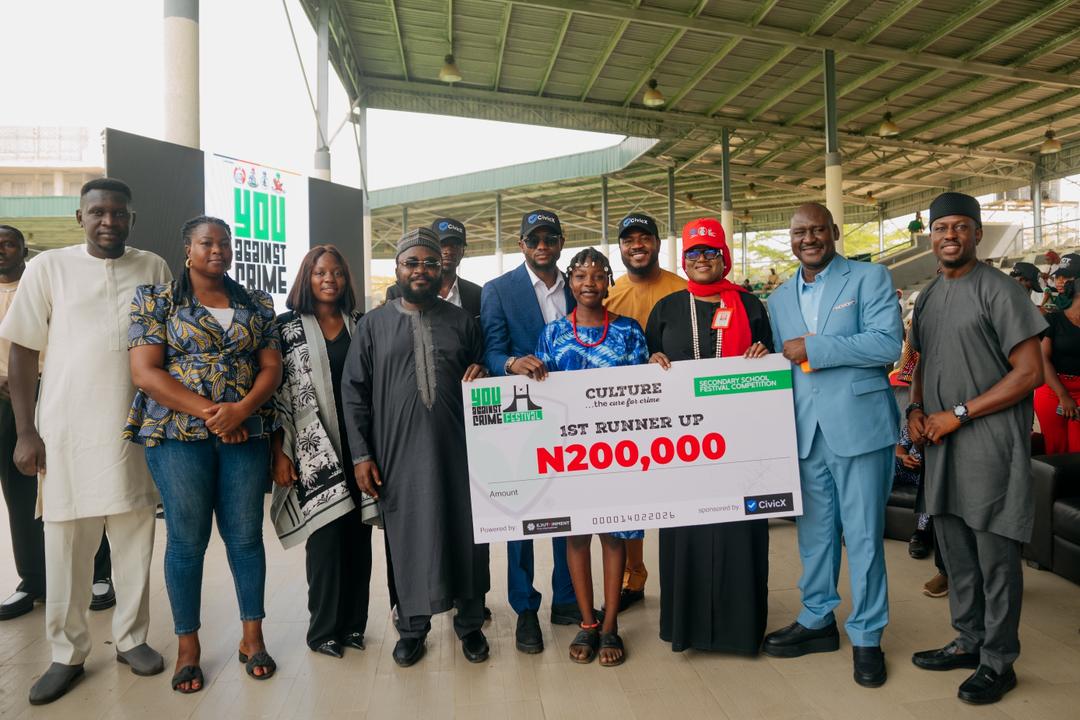
You Against Crime Founder Tayo Folorunsho Praises Winners of Abuja Schools Festival.
Abuja, Nigeria – The maiden edition of the You Against Crime – Schools Festival 2026 Grand Finale has concluded, marking a significant milestone in youth engagement and crime prevention efforts across the Federal Capital Territory (FCT).
The event, held at the University of Abuja, brought together 78 secondary schools from the six Area Councils of Abuja, with the top six schools competing in the Grand Finale.
*Winners Emerge*
Tudunwada School, Bwari took the top spot, followed closely by The Golden Crest Royal in second place, and Government Secondary School, Kuje in third.
*CULTURE, THE CURE FOR CRIME*
The festival’s theme, “Culture, The Cure for Crime,” highlighted the importance of values, identity, mentorship, and positive engagement in preventing crime and shaping responsible citizenship among young people.
*DISTINGUISHED GUEST SPEAKERS*
Auwal Musa Rafsanjani, Chairman, Amnesty International, praised the initiative, saying, “This festival is a beacon of hope for our young people, promoting values and principles that can shape a brighter future for Nigeria.”
Aisha Mohammed, Head of Enlightenment & Re-orientation, Economic and Financial Crimes Commission, emphasized the importance of mentorship, stating, “Empowering young people with the right guidance and opportunities is key to preventing crime and building a stronger nation.”
*PARTNERSHIP AND SUPPORT*
The 2026 Grand Finale Edition was proudly sponsored by Civicx Technology Ltd Int’l, reinforcing a shared commitment to youth empowerment and crime prevention through cultural reorientation and innovation.
Tayo Folorunsho, Host & Founder, You Against Crime International, addressing the media and appealed to government agencies to support initiatives like this, targeting young minds early.
You Against Crime International is a movement advocating cultural change as a long-term solution to crime. The organization remains committed to advancing youth development, civic responsibility, and nation-building across Nigeria.
society
TICP Customs Launches Paperless Regime, Warns Against False Declarations
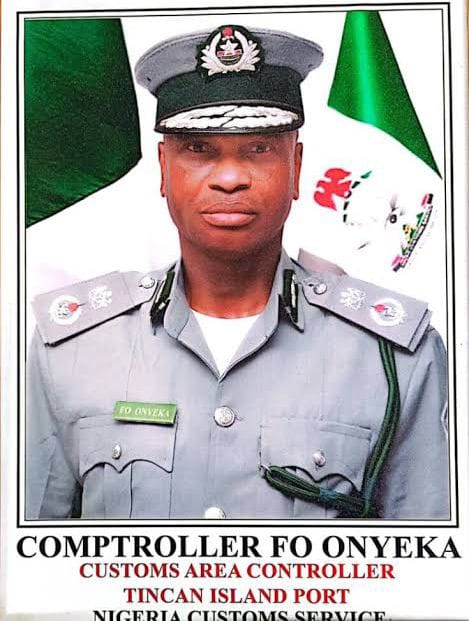
TICP Customs Launches Paperless Regime, Warns Against False Declarations
The Customs Area Controller of Tin Can Island Port Command of the Nigeria Customs Service (NCS), Comptroller Frank Onyeka, has launched a roadmap for the full implementation of a paperless regime at the command.
Onyeka disclosed this during a press briefing in Lagos, stating that the command was fully prepared for seamless digital operations ahead of the nationwide rollout scheduled for the second quarter of the year.
He described the engagement as the first in a series of consultations aimed at sensitising stakeholders on the strategies, operational framework and expectations under the new regime.
The controller commended the media for its constructive reportage since his assumption of office and sought continued collaboration to ensure the success of the initiative.
Presenting the command’s performance report, Onyeka said the Tin Can Island Command generated ₦609 billion in revenue in 2025, describing it as the highest in the history of the command.
He added that revenue collection rose from ₦116 billion recorded in January of the previous year to ₦145 billion in the corresponding period last month, representing an increase of over ₦29.9 billion.
Onyeka stated that his vision was to make the command known for trade efficiency, explaining that under the paperless regime, containers would be released without physical contact between Customs officers and clearing agents, provided declarations were accurate.
He credited the Comptroller-General of Customs, Bashir Adewale Adeniyi, for providing the leadership and strategic direction driving modernisation efforts across Customs formations nationwide.
The controller urged stakeholders to avoid false declarations and engage directly with the command to resolve concerns, emphasising that transparency and dialogue were essential to achieving efficient port operations.
He assured that consignments with clear scanning results and proper documentation would be released promptly, while those flagged by the risk management system would undergo physical examination, adding that the command would continue to collaborate with other agencies to reduce cargo dwell time and enhance port efficiency.
society
Love on Display: Katie Price and Lee Put On a Public Show of Affection

Love on Display: Katie Price and Lee Put On a Public Show of Affection
By George Omagbemi Sylvester | Published by SaharaWeeklyNG
British media personality Katie Price is once again at the center of tabloid and public attention after being photographed poolside with her new husband, Lee, in a display of affection that quickly circulated across entertainment platforms. The images, reportedly taken during a recent leisure outing at a private resort location in the United Kingdom, show the couple embracing and kissing beside a swimming pool, with Lee prominently displaying a tattoo tribute dedicated to Price.
The photographs, which surfaced in mid-February 2026 through British tabloid outlets, depict the couple appearing relaxed and affectionate. Lee, whose full name has been reported in sections of the UK press but who largely maintains a lower public profile compared to his wife, lifted his arm to reveal a visible tattoo said to be in honor of Price and a gesture widely interpreted as a public affirmation of their relationship.
What happened was straightforward but symbolically charged: a public display of affection between newlyweds, amplified by Price’s longstanding celebrity status. Where it happened (poolside at what sources describe as a private holiday setting) underscores the blending of personal life and public spectacle that has long defined Price’s media journey. During a recent February getaway placed it squarely within ongoing tabloid interest surrounding her latest marriage. Price, 47 and her new husband Lee, whose visible tribute tattoo became the focal point of the moment.
Celebrity culture scholars argue that public figures such as Price operate within a media ecosystem where visibility sustains relevance. “Modern celebrity is performative intimacy,” explains Professor Graeme Turner, a media and cultural studies scholar known for his work on celebrity culture. “Public displays of affection are not merely private acts; they are communicative gestures that reinforce brand identity and narrative continuity.” In Price’s case, her romantic relationships have long been interwoven with her public persona.
Price first rose to prominence in the late 1990s under the glamour model moniker “Jordan,” before transitioning into reality television, publishing and business ventures. Her personal life (including previous marriages and high-profile relationships) has frequently generated headlines in the British press. This latest marriage continues that pattern of intense scrutiny.
The tattoo tribute displayed by Lee is particularly significant in celebrity symbolism. Body art dedicated to a partner is often perceived as a declaration of permanence. Dr. Chris Rojek, emeritus professor of sociology and an authority on fame and public identity, has observed that “celebrity relationships are sustained as much through symbolic reinforcement as through private commitment. Visible tokens (rings, tattoos, coordinated appearances) function as public assurances.” In this case, the tattoo serves not merely as personal expression but as a visual narrative device in an already highly mediated relationship.
How the moment unfolded (casually but conspicuously) reflects the dynamics of contemporary celebrity coverage. Photographs were reportedly captured either by paparazzi stationed nearby or shared through controlled media access, a common practice in the British entertainment industry. Within hours, the images were republished by multiple outlets, accompanied by commentary on Price’s relationship history and ongoing legal and financial challenges, issues that have previously placed her under intense public scrutiny.
Despite recurring controversy throughout her career, Price remains a resilient media figure. Communications analyst Mark Borkowski has previously remarked in interviews that “Katie Price understands publicity better than most. Whether by design or instinct, she maintains a feedback loop with the press that keeps her culturally visible.” The poolside photographs appear to fit squarely within that established pattern of managed exposure and reactive media amplification.
Critically, there is no indication of misconduct, public disturbance or controversy tied directly to the poolside display itself. It was, by all verified accounts, a consensual and celebratory expression of affection between married adults. The wider attention it has generated speaks less to the act and more to the individuals involved; particularly Price’s enduring position within British popular culture.
For global audiences, the episode illustrates a broader truth about contemporary fame: private milestones often become public commodities. The marriage of Katie Price and Lee (and the symbolic tattoo that now marks it) has become another chapter in a life lived persistently under the camera’s gaze.
As celebrity culture continues to blur boundaries between intimacy and publicity, moments like this poolside embrace are no longer trivial snapshots. They are narrative events, reinforcing identity, commitment and brand continuity in equal measure.
-

 celebrity radar - gossips6 months ago
celebrity radar - gossips6 months agoWhy Babangida’s Hilltop Home Became Nigeria’s Political “Mecca”
-

 society6 months ago
society6 months agoPower is a Loan, Not a Possession: The Sacred Duty of Planting People
-

 news6 months ago
news6 months agoTHE APPOINTMENT OF WASIU AYINDE BY THE FEDERAL GOVERNMENT AS AN AMBASSADOR SOUNDS EMBARRASSING
-

 society5 months ago
society5 months agoReligion: Africa’s Oldest Weapon of Enslavement and the Forgotten Truth

